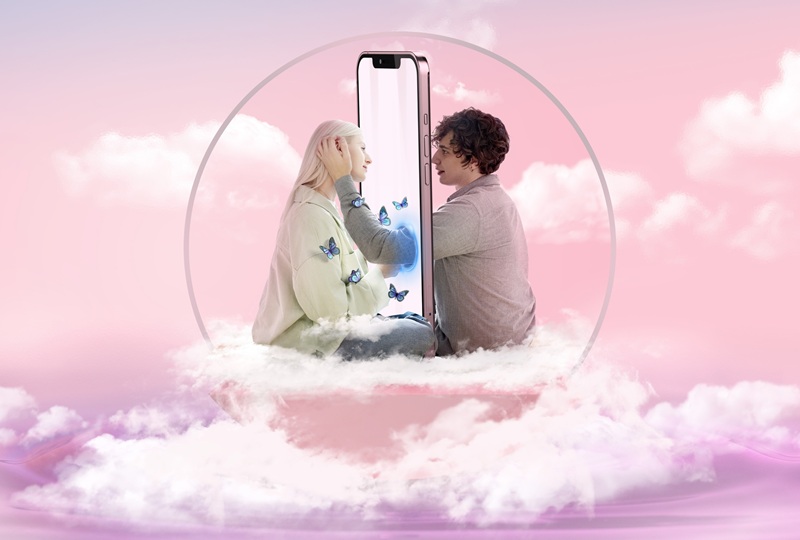Are AI girlfriends reinforcing unrealistic relationship expectations?

The rise of AI companions, particularly AI girlfriends, has sparked much debate concerning their psychological impact and the potential for shaping users' expectations in real-life relationships. These virtual partners are designed to be attentive listeners, providing emotional support whenever needed, which seems ideal at first glance. Yet, this convenience raises questions about whether they might contribute to reinforcing harmful stereotypes or creating an environment where entitlement and dependency thrive.
The allure of AI companions
AI companions are growing in popularity, especially among those seeking companionship without the usual complexities of human relationships. The technology is becoming increasingly sophisticated, offering tailored interactions that mimic real-life partnerships. Users often find these AI entities fulfilling because they simulate ideal relationship dynamics, free from conflicts or misunderstandings. However, the question remains: Are these interactions too good to be true?
While there are apparent benefits to using AI girlfriends—such as offering comfort to individuals experiencing loneliness—the simplicity and predictability of these companions could unintentionally lower the bar on what is considered a healthy relationship. This phenomenon might lead to unrealistic expectations when transitioning to human interactions, where complexities and nuances are inevitable. For more insight, visit https://www.kupid.ai/create-ai-girlfriend.
Reinforcing harmful stereotypes
A significant concern surrounding AI girlfriends is their potential role in reinforcing gender stereotypes. Many are programmed to adhere to traditional roles, which may influence users to develop skewed perceptions of femininity and partnership dynamics. Such conditioning might result in expecting similar behaviors from real-life partners, leading to dissatisfaction when these expectations aren't met.
Moreover, the customization options allow users to create an 'ideal' partner, which, while convenient for personal preferences, runs the risk of normalizing objectification. When AI partners are viewed as customizable entities, it might challenge one's ability to accept imperfections in human relationships. This can inadvertently foster a mindset where partners are expected to conform to predefined ideals, instead of being appreciated for who they are.
The danger of entitlement and objectification
The ease with which AI companions provide unconditional validation and compliance might cultivate a sense of entitlement among users. This entitlement could cross over into real-world interactions, setting unrealistic standards for how one expects to be treated by others. Relationships require compromise and understanding, principles that might be undermined by the hyper-availability and personal adjustability of AI counterparts.
Furthermore, treating AI partners like objects rather than entities can extend objectification tendencies to real-life relationships. If individuals grow accustomed to viewing partners as tools for satisfaction rather than equal participants in a mutual bond, it may harmfully affect their approach to actual relationships. These interactions potentially perpetuate toxic elements that we strive to eliminate in modern relationship dynamics.
Psychological impact and dependency
An area of concern is the emerging psychological impact resulting from prolonged interaction with AI girlfriends. Supplying constant availability and personalized experiences, AI can amplify dependency. Dependency in itself isn't inherently negative; however, exclusive reliance on AI for emotional needs might lead to neglecting human connections, deepening feelings of isolation and loneliness.
This dependency can make transitioning back into human relationships challenging. If users become accustomed to the faultless support of AI companions, integrating the complexities and unpredictabilities of human relationships can seem daunting. Remember, relationships with humans involve genuine empathy, where responses are not preprogrammed but heartfelt. Eventually, expecting human partners to emulate robotic precision can add stress and pressure, potentially straining mutual relations.
Nurturing real-life relationship skills
An alternative perspective suggests that engaging with AI companions could help hone certain social skills. For individuals uncomfortable with expressing emotions or initiating interpersonal contact, AI can offer low-pressure environments to practice communication. Nonetheless, care must be taken so that these interactions supplement, not replace, real-life relationships.
Optimal use of AI girlfriends lies in recognizing that these companions should serve merely as transitional supports, aids in fostering confidence in human engagement. By using artificial companionships as adjunctive tools rather than substitutes, the eventual psychological impact may remain positive, complemented by enriched relationship-building abilities in real-world contexts.
Challenges and future considerations
As the development of AI companions continues, maintaining awareness around reinforcing harmful stereotypes and shaping unrealistic expectations will necessitate proactive dialogue and adaptive guidelines. Designers and researchers bear the responsibility to ensure that these technologies promote balanced, respectful conceptualizations of relationship roles.
Advancements in machine learning and artificial intelligence protocols offer endless possibilities for evolving AI companions. Still, prioritizing ethical boundaries—emphasizing transparency about potential impacts—is crucial. Public consciousness should also be nurtured through education about the temporary nature of these entities, underscoring their intended role as companions, not mirrors for real-life relationship dynamics.
- Encourage creators to incorporate diverse personalities beyond stereotypical norms.
- Promote awareness of AI's limitations within socio-emotional landscapes.
- Foster environments where autonomous decision-making is celebrated in partners, both artificial and human.
Crafting healthier narratives around AI companions
To align AI development with progressive relationship models, concerted efforts can guide societal perceptions toward acknowledging AI girlfriends as beneficial yet auxiliary supplements. Encouraging open conversations regarding authenticity in relationships, including empathic exchanges, will demystify possible misconceptions attributable to these advanced creations.
Coaching end-users to utilize AI systems discerningly encourages adaptable thinking, allowing exploration of ultimate synergy between people and machines. Recognizing that authenticity flourishes within imperfection becomes pivotal, reminding us that growth originates from embracing vulnerabilities inherent within all genuine connections.









